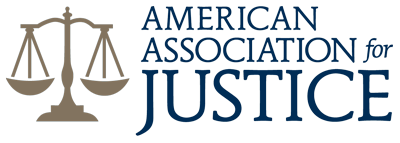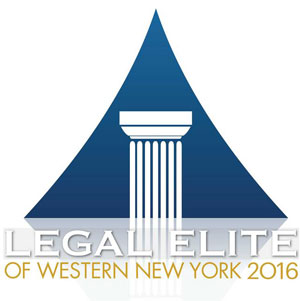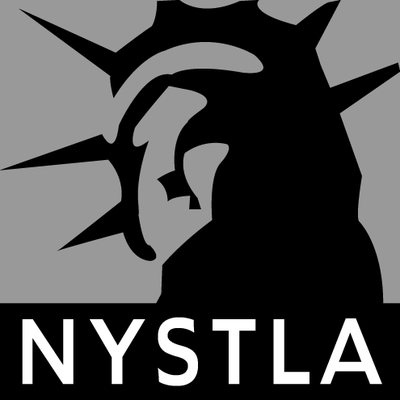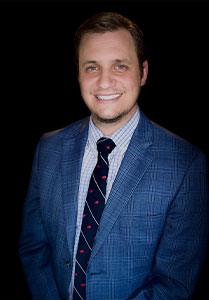Motorcycle riding can bring an unmatched sense of freedom, but it also involves serious risks. Accidents on motorcycles are often severe, and riders can suffer major injuries, even when taking all the right precautions. In New York, helmet laws play a critical role in motorcycle safety, not just for personal protection but also for how motorcycle accident claims are handled legally. If an accident happens, whether or not the rider was wearing a helmet can significantly impact the case. In this guide, we’ll explore the role of helmet laws in New York, how they relate to injury claims, and what to expect when seeking compensation after a motorcycle accident.
At, Andrews, Bernstein & Maranto, PLLC , we are here to guide you through the legal process and help you navigate the complexities of your case.
New York’s Helmet Laws for Motorcyclists
New York state enforces strict helmet laws for motorcycle riders. These laws state that all motorcyclists and passengers must wear helmets when riding on public roads. The helmet must meet specific safety standards to be considered legal. This rule is in place to help lower the risk of serious head injuries, which are unfortunately common in motorcycle crashes.
These helmet laws are intended to protect riders, as wearing a helmet can make a big difference in the severity of injuries during an accident. A properly fitted, approved helmet can lower the chances of life-threatening head trauma, as well as reduce the overall level of harm experienced. Because of the significant role helmets play in saving lives and reducing injuries, New York takes this law seriously, and violating it can lead to penalties.
In motorcycle accident cases, the use of a helmet or the failure to wear one can influence the claim outcome. The law impacts both the ability to seek compensation and how much may be awarded, depending on if the rider was following helmet requirements at the time of the crash.
How Helmet Use Affects Injury Claims After a Motorcycle Accident
When filing a motorcycle accident claim in New York, whether or not the rider was wearing a helmet often affects the process. Injuries caused by motorcycle accidents are evaluated in terms of how the helmet, or lack of one, influenced the severity of the injury. For example, if a rider sustains a head injury and was not wearing a helmet, it could be argued that the injury might have been preventable had they followed helmet laws.
In legal cases, the term “comparative negligence” is often used. This idea means that if the injured person played a role in causing their injuries, their compensation can be reduced by the percentage of their responsibility. For motorcycle accidents, if a rider was not wearing a helmet and suffers a head injury, they could be considered partially responsible for their own harm, which may lower the amount of money they receive in a settlement or court decision. This reduction can depend on how much the court decides the helmet could have prevented or reduced the injury.
Helmet Use and Comparative Negligence in New York
New York uses a system of pure comparative negligence in motorcycle accident claims. This approach means that even if the rider is found to be partially at fault, they can still recover damages, but their compensation will be reduced by the degree of fault assigned to them. If a rider fails to wear a helmet and sustains a head injury, they might be held partly responsible for those specific injuries. For instance, if a judge decides that 30 percent of the fault for the head injury lies with the rider because they did not wear a helmet, the amount awarded could be reduced by that percentage.
The law is set up this way to ensure fairness in cases where the injured person may have increased their risk of harm. However, New York’s system also allows for fair compensation even if the injured party shares some responsibility. In cases where injuries extend beyond just head trauma, such as broken bones or damage to other body parts, the helmet’s role in the injuries might be less significant, allowing for a potentially larger claim amount for non-head-related injuries.
The team is very personable, patient and empathetic with their clients. They are upfront with you and will explain the entire process with you, they never lead you to believe otherwise, they tell you like it is and will not sell you a million dollar dream. Trust in Andrews, Bernstein & Maranto, PLLC, they work for you and he looks out for your best interest.” - Jane D.
Insurance Claims and How Helmet Use May Affect Payouts
Insurance companies are usually quick to investigate whether the motorcycle rider involved in an accident was following helmet laws. When filing a claim with an insurance company, the insurer will consider the fact that the rider either wore or did not wear a helmet at the time of the accident. If a rider was wearing a helmet, the insurer may be more willing to settle for a fair amount since the rider demonstrated safety awareness.
On the other hand, if the rider was not wearing a helmet, the insurance company might argue that the injuries were more severe because of this choice. Insurance adjusters often look for ways to reduce the payout, so not wearing a helmet could give them a reason to argue for a lower settlement amount. This practice can feel unfair to the injured rider, especially if they were otherwise driving responsibly. Still, in New York, helmet laws are considered important, and insurance companies often use them as a factor when determining compensation.
Exceptions to Helmet Use and Their Impact on Claims
There are very few exceptions to New York’s helmet law. One exception is for certain medical conditions that prevent a rider from safely wearing a helmet, though this is rare and must be proven with proper documentation. Another exception applies to specific types of events, such as certain types of parades, where motorcycle riders might be allowed to ride without helmets under specific permits. In general, though, New York requires all motorcyclists and their passengers to wear helmets on public roads.
Should I Take The First Settlement Offer? Steps to File a Personal Injury ClaimRelated Videos
In cases where an exception applies, it may change the impact on the accident claim. If the rider has documented proof of an exception, then not wearing a helmet is less likely to harm their case. However, these cases are quite rare, and most riders in New York must adhere to the helmet law or face the risk of penalties and claim issues if an accident occurs.
Medical Expenses and Long-Term Effects in Motorcycle Accident Claims
When someone is involved in a motorcycle accident, the medical costs are often high. From emergency treatment to surgeries and rehabilitation, the expenses can quickly add up. Head injuries, in particular, are known for requiring extensive medical care, and the long-term effects can be life-changing. Traumatic brain injuries may result in memory problems, loss of motor skills, or even personality changes, all of which can impact a person’s ability to work and lead a normal life.
If the rider was wearing a helmet, this demonstrates to the court or insurance company that the rider took reasonable safety precautions, which could work in their favor when seeking compensation for these expenses. On the other hand, a rider who wasn’t wearing a helmet and sustains a head injury might have a harder time recovering the full amount for medical bills and ongoing care, as it could be argued that the injuries might have been less severe with helmet use.
Helmet Laws and Their Role in Court Decisions
If a motorcycle accident case goes to court, helmet use may become a critical part of the case. The judge and jury may consider the fact that the rider was or was not wearing a helmet when deciding on damages. If the rider wore a helmet, it could reflect positively, showing the rider’s effort to follow safety guidelines. This compliance can make a favorable impression on the court and potentially influence a fairer outcome in terms of compensation.
However, if the rider did not wear a helmet, it might sway the court’s view on the rider’s responsibility for their injuries. A judge or jury may be less sympathetic if they believe the injuries were worsened by the lack of helmet use. This view does not necessarily mean the rider will receive nothing, but it could affect the final judgment amount. Courts aim to be fair, but they also consider how following or not following laws, like helmet requirements, impact the severity of injuries in an accident.
Verdicts & Settlements
Understanding Your Rights and Protecting Your Claim After a Motorcycle Accident
Riders who suffer injuries in a motorcycle accident have rights, including the right to seek compensation for their injuries, pain, and suffering. But because of New York’s strict helmet laws, it’s essential to understand how helmet use or lack thereof might impact the claim. Knowing this can help riders make informed choices after an accident and increase their chances of a fair outcome.
After a motorcycle accident, riders should seek medical attention immediately and document the incident as thoroughly as possible. This documentation can support their case when seeking compensation from insurance companies or in court. Following up with medical records, police reports, and, if possible, witness statements can provide a solid foundation for a claim. It is also highly recommended to seek legal guidance to navigate these complexities.
Motorcycle accidents can bring overwhelming challenges, especially when helmet laws come into play in New York. If you or a loved one has been injured in a motorcycle accident, understanding your rights and knowing how helmet laws might affect your case is crucial. Andrews, Bernstein & Maranto, PLLC is here to assist you in seeking fair compensation and guiding you through each step. With our team’s experience in handling motorcycle accident claims, we are committed to helping you achieve the best possible outcome. Contact us today to learn how we can support you in moving forward after your accident.














